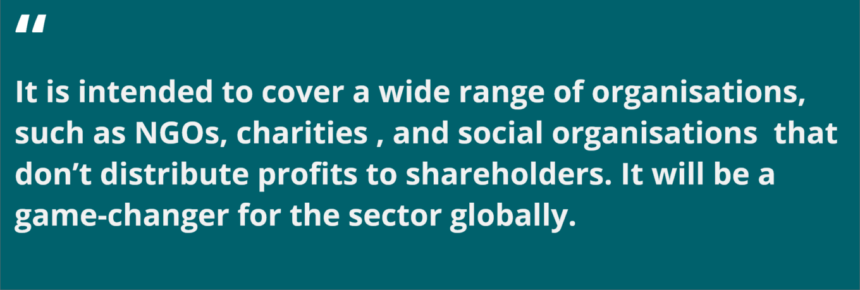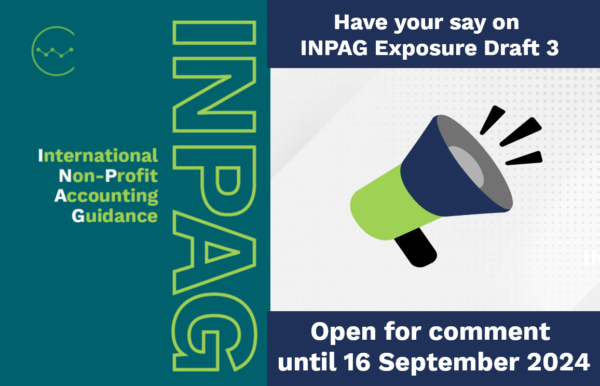Karen Sanderson and Samantha Musoke explain the work CIPFA and Humentum have done to develop International Non-Profit Accounting Guidance, and how you can give your feedback ahead of the final publication.
* Please note this blog was first published in the Public Finance Magazine as Simplifying financial reports for non-profits worldwide.
IFR4NPO is a groundbreaking project to create International Non-Profit Accounting Guidance (INPAG), akin to financial reporting standards for other sectors. It is intended to cover a wide range of organisations, such as non-profit organisations (NGOs, charities, and social organisations that don’t distribute profits to shareholders. It will be a game-changer for the sector globally.


Why? Across the world, compliance with an internationally recognised standard will help local organisations to attract funding. And the reports themselves will be relevant to a wider range of stakeholders and civil society, as well as donors on whom many non-profit organisations (NPOs) depend. Improving quality, credibility and trust are the cornerstones of the proposals.
Standard-setting is a notoriously slow process, but the speed of the guidance development has been impressive.
The first of three ‘Exposure Drafts’ was released for public feedback in early 2022, and the final exposure draft (ED3) was released on 28 May 2024, including a full set of illustrative financial statements.
Exposure Draft 3 (ED3) focuses on key areas like:
Fund Accounting is crucial. It lets NPOs show they’re using restricted donations properly. It also helps them track their unrestricted funds or reserves, which provide a financial safety net and lead to greater resilience. Further transparency concerning unrestricted funds can also help provide flexible funding. That said, the mechanics of fund accounting can be complex, especially for smaller organisations. With internationally recognised definitions and processes, we hope that accounting software can provide this functionality, even for low budget packages.
INPAG and Donor reporting tackles another big issue: diverse donor requirements. Many donors have bespoke budgeting and reporting templates, and all the additional work to provide accountability acts as a distraction from an NPO’s mission! The capacity needed to comply also creates a barrier to local organisations, who are closest to where the work is happening. INPAG provides a standard format for donor reports, including a bridge to the main accounts. This is a win-win for funders and NPOs.
The expenditure classification guidance in INPAG allows for flexibility. Non-profits come in all shapes and sizes, so one method won’t work for everyone. INPAG suggests a default way to show costs (by nature) but allows a choice where an alternative gives a clearer picture of their activities. Disclosures help to bring comparability. Standard approaches to cost allocation will provide information about support costs. This will also help with negotiations between NPOs and donors when covering the full cost of the projects they fund.
Fundraising costs are also covered to help answer questions about an NPO’s income quality and sustainability, or the efficiency and effectiveness of fundraising activities. INPAG has a broad definition of generating resources through donations, commercial and trading activities, or investment management. With INPAG, the non-profit sector can expect improved transparency, leading to stronger trust from donors and the public.

It is a long-awaited breakthrough supporting more effective and locally driven development efforts.
The final guidance is due to be published next year. We need your feedback now to make sure INPAG meets everyone’s needs – not just accountants, but anyone interested in non-profit work. Visit www.ifr4npo.org/have-your-say to share your thoughts by 16 September 2024.
Together, we can reshape the future of non-profit financial reporting!
The INPAG Exposure Draft 3 Webinar Series will hold from July 9 -25. This series will cover key proposals in the Exposure Draft 3. Each one is for 60 minutes starting at 11:00 UTC / GMT.
This is a great opportunity for stakeholders in our Country to become familiar with the proposals, ask questions, share comments, and learn how to respond to the consultation. The events will be held in English, and will support participation in Spanish and French.
You can see information about all the events and register here.